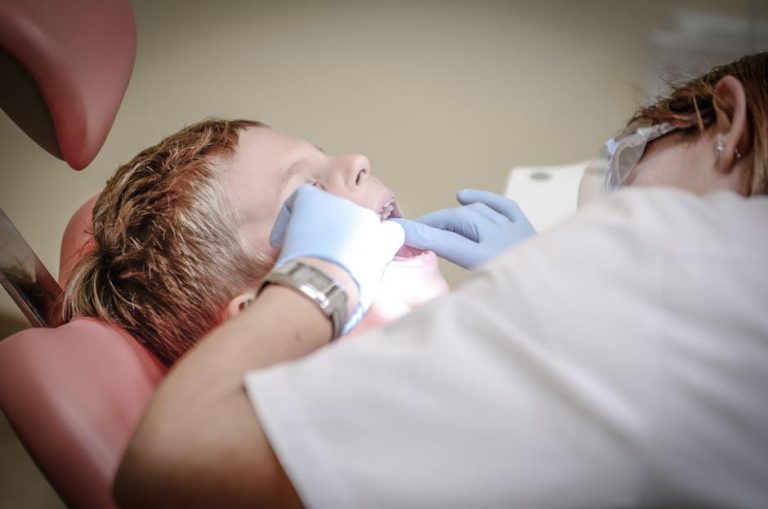
Dentists Are Pulling ‘Healthy’ and Treatable Teeth To Profit From Implants, Experts Warn – KFF Health News
Are dentists removing teeth prematurely just to push expensive implants? Recent reports and expert warnings, as highlighted by KFF Health News, have spotlighted a troubling trend in dental care: the extraction of “healthy” and treatable teeth for profit-driven dental implant procedures. This article explores the controversy, what it means for patients, and how you can protect your oral health from unnecessary treatments.
The Growing Concern: Profit Over Patient Care
As dental implants become increasingly popular due to their durability and cosmetic appeal, some dentists reportedly see them as a lucrative opportunity. However, experts caution that this financial incentive may lead some practitioners to recommend removing natural teeth that could otherwise be saved through conventional treatments such as root canals or crowns.
According to KFF Health News:
- There’s an uptick in cases where teeth classified as “healthy” or “treatable” are extracted unnecessarily.
- Patients often feel rushed or pressured into choosing implants without receiving clear alternatives.
- Insurance coverage can sometimes incentivize implants over tooth-saving procedures due to reimbursement rates.
Why Are Implants So Lucrative for Dentists?
Understanding the dental business is key to recognizing the dynamics at play:
- Higher Procedure Fees: Dental implants often cost thousands of dollars per tooth, compared to more affordable restorative procedures like root canals and fillings.
- Complexity and Skill: Implant treatments require specialized skills and equipment, justifying higher charges.
- Repeat Business: Implants and related procedures may require ongoing maintenance and follow-ups, creating more revenue streams.
Signs Your Dentist Might Recommend Unnecessary Tooth Extraction
Patients should stay alert to possible red flags. Here are some signs to watch for:
- Lack of Alternatives: If your dentist immediately suggests extraction and implants without discussing options like root canal therapy or periodontal treatments.
- High-Pressure Tactics: Feeling rushed to consent to surgery or implant placement.
- Minimal Diagnostic Evidence: Few diagnostic tests presented to justify extraction, e.g., no X-rays or second opinions.
- Unexplained Pricing Differences: The sudden proposal of a highly expensive treatment without a clear explanation of its necessity.
Dental Implants vs. Natural Teeth: What’s at Stake?
Dental implants have revolutionized tooth replacement, but they are not without risks and disadvantages when chosen needlessly.
| Factor | Natural Teeth | Dental Implants |
|---|---|---|
| Longevity | Can last a lifetime with proper care | Typically 10-20 years before possible repair or replacement |
| Function | Natural sensitivity and chewing efficiency | Strong, but lacks natural tooth nerve sensitivity |
| Procedure Invasiveness | Often treated with fillings or root canals | Requires surgery with healing time |
| Cost | Less expensive restorative treatments | Costly – often several thousand dollars per implant |
| Risks | Risk of decay, but generally less invasive risk | Risk of infection, implant failure, and bone loss |
Benefits of Saving Your Natural Teeth Whenever Possible
Preserving natural teeth is generally the best oral health strategy. Here are key benefits:
- Maintains Bone Health: Retains jawbone density naturally, preventing bone loss that often follows extraction.
- Preserves Natural Function: Natural teeth provide optimal chewing and biting sensation.
- Less Expensive: Treatments like root canals and fillings are typically more affordable than implants.
- Fewer Risks: Avoids surgical complications associated with dental implant placement.
Practical Tips for Patients Considering Dental Implants
To safeguard your oral health and finances, keep these tips in mind:
- Seek a Second Opinion: Always consult more than one dental professional, especially if extraction is suggested.
- Request Complete Diagnostics: Ask for X-rays, scans, and treatment alternatives documentation.
- Understand Your Options: Learn about root canals, crowns, bridges, and periodontal treatments that may save your teeth.
- Research Your Dentist’s Reputation: Look for patient reviews and professional certifications.
- Discuss Insurance Coverage: Understand which procedures are covered and potential out-of-pocket costs.
Case Study: When Treatment Choice Makes a Difference
Consider Mary, a 45-year-old patient who was advised to extract a molar and replace it with an implant due to a cracked tooth. Uncomfortable with the recommendation, she sought a second opinion from a specialist who successfully restored her tooth with a root canal and crown. Mary saved thousands of dollars and preserved her natural tooth for years to come.
First-Hand Experience: Patient Voices
“I felt pressured into getting implants, but I asked for a second opinion. Thankfully, my second dentist saved my tooth with a root canal. It was less painful and cheaper. I’m glad I didn’t rush into extraction.” – John D.
“My dentist recommended pulling a perfectly healthy tooth just to fit in an implant because it paid better. I changed providers and was able to keep my tooth with a filling. Patients need to be careful!” – Sarah M.
Conclusion: Be an Empowered Patient
The rise in dental implant popularity brings incredible benefits but also potential ethical concerns when healthy teeth are pulled unnecessarily. KFF Health News and expert voices emphasize the importance of patient education and vigilance. Always explore treatment alternatives, seek multiple opinions, and ask tough questions before deciding to extract natural, treatable teeth.
Your oral health is too valuable to be compromised by profit-driven decisions. Taking the time to understand your options can save your smile, your health, and your wallet.
Remember: Healthy teeth are worth preserving whenever possible.


